Counties include: Amador, Alpine, Calaveras, Fresno, Inyo, Kern, Kings, Madera, Mariposa, Merced, Mono, San Joaquin, Stanislaus, Tulare, and Tuolumne
Provides affordable solutions for income-qualified residents and those in disadvantaged communities to purchase or lease cleaner, more fuel-efficient cars and trucks.
 Drive Clean in the San Joaquin - Clean Cars 4 All
Drive Clean in the San Joaquin - Clean Cars 4 All
The San Joaquin Valley Air Pollution Control District (SJVAPCD) administers the
Drive Clean in the San Joaquin program. Vehicle owners residing in the jurisdiction of the SJVAPCD who meet the income and vehicle requirements can get up to $9,500 to scrap their older, more polluting vehicle with a cleaner, more fuel-efficient vehicle.
Lessons Learned and Project Highlights
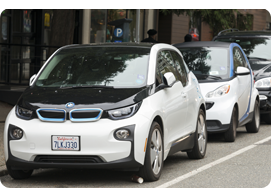 Clean Vehicle Rebate Project (CVRP)
Clean Vehicle Rebate Project (CVRP)
Funding for Individuals & Families
Get up to $7,500 to purchase or lease a new plug-in hybrid, battery electric, or fuel cell electric vehicle. CVRP is available to income-eligible California residents. Increased rebates for low-income applicants available!
To apply for a CVRP rebate and for additional eligibility information visit the official
CVRP program page.
Businesses, Nonprofits, and Federal Entities
Get up to $4,500 for the purchase or lease of one eligible zero-emission and plug-in hybrid light-duty vehicles. For more information on CVRP opportunities and additional eligibility guidelines, visit the Businesses, Nonprofits, and Federal Entities webpage on the official
CVRP program page.
Clean Vehicle Rebate Project (CVRP) for Public Fleets
Local, State, and tribal government entities can get up to $7,000 to purchase or lease new advanced light-duty technology vehicles, including plug-in hybrid electric (PHEV), battery electric (BEV), and fuel cell electric vehicles (FCEV) - up to 30 rebates per year.
For more information on CVRP for public fleets, and eligibility guidelines visit the Public Fleets webpage on the official
CVRP program page.
Testimonial Video
 Financing Assistance for Low-Income Consumers
Financing Assistance for Low-Income Consumers
Clean Vehicle Assistance Program – CVA Program (Statewide)
The CVA Program is administered by the Beneficial State Foundation (BSF) and offers eligible applicants price buy-down grants of up to $7,500 and affordable financing opportunities (≤ 8% interest) towards the purchase of eligible clean vehicles, including up to $2,000 for a Level 2 home charger installation for eligible vehicle purchases or a $1,000 prepaid charge card and a free portable Level 1 charger.
For more information on the CVA Program grant and loan application information, please visit the official
CVA Program page.
 Loan Assistance Program
Loan Assistance Program
Loan assistance is available to qualified trucking fleets with 10 or fewer heavy-duty vehicles. Additional program criteria requires that an eligible trucking company meet basic requirements by qualifying as a small business (fewer than 100 employees), generate less than $10 million in annual revenue, and operate primarily in California.
Loan assistance is available for:
- Used and new trucks with 2010 and newer model year engines CARB-certified to 2010 and later model year emission standards.
- The engines can use diesel fuel, compressed natural gas (CNG), liquefied natural gas (LNG), or other fuels including zero-emission technology.
- Trailers may be eligible for financing only in conjunction with an eligible tractor.
To apply to this program:
- The borrower applies for a loan at a participating CalCAP lender by filling out the Borrower Eligibility Criteria and Self-Certification Form (Sample Form). CalCAP lenders and truck dealerships may be able to assist the borrower in completing this form. In addition, the borrower completes the lender’s required loan application forms.
- If the borrower qualifies based on the lender’s loan underwriting standards, loan documents are prepared and signed by the borrower and lender.
- Lender disburses funds to the borrower.
 Hybrid & Zero-Emission Truck & Bus Voucher Incentive Project (HVIP)
Hybrid & Zero-Emission Truck & Bus Voucher Incentive Project (HVIP)
Statewide program provides vouchers for California purchasers of up to $175,000 for zero-emission buses, up to $300,000 for fuel cell buses and Class 7 and 8 trucks, and up to $45,000 for Low NOx 11.9 liter natural gas engines. The program helps offset the higher costs of clean vehicles and additional incentives are available for providing disadvantaged community benefits.
For more information visit
California HVIP website
 Clean Off-Road Equipment Voucher Incentive Project (CORE)
Clean Off-Road Equipment Voucher Incentive Project (CORE)
The Clean Off-Road Equipment Voucher Incentive Project (CORE) is intended to accelerate deployment of advanced technology in the off-road sector by providing a streamlined way for fleets to access funding that helps offset the incremental cost of such technology. CORE targets commercial-ready products that have not yet achieved a significant market foothold.
For more information visit
CORE website
 The Funding Agricultural Replacement Measures for Emission Reductions (FARMER)
The Funding Agricultural Replacement Measures for Emission Reductions (FARMER)
The Funding Agricultural Replacement Measures for Emission Reductions (FARMER) Program provides funding through local air districts for agricultural harvesting equipment, heavy-duty trucks, agricultural pump engines, tractors, and other equipment used in agricultural operations.
For more information visit
FARMER website
Funding available through community projects to improve clean transportation and mobility choices for residents of disadvantaged and low-income communities.
Demonstration and pilot projects aim to transform on-road and off-road fleets to clean technologies by demonstrating new technologies and advancing their commercial viability.
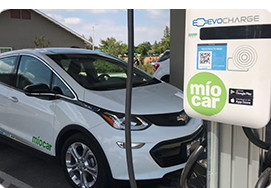
Ecosystem of Shared Mobility Pilot - San Joaquin Valley
San Joaquin Valley APCD, $3,119,000 (CARB Contribution)
Serves disadvantaged communities throughout San Joaquin Valley
Pilot includes 3 components:
- Miocar is an affordable all electric carsharing service serving 8 affordable housing complexes in rural Tulare and Kern counties, with 27 electric vehicles
- The VAMOS Mobility as a Service (Maas) app which is a transportation-planning app that maximizes trip efficiency across the San Joaquin Valley and includes electric carsharing reservations (MioCar), EV ride-hailing (VOGO), bike routes, bus routes, and the option to pay transit fares
- VOGO (Volunteer Ride-hailing) – Volunteers on the Go (VOGO) is a ride-hailing service offering free rides to underserved members of the community that cannot drive themselves or because other transit options are not available in the rural disadvantaged community census tracts
Lessons learned and project highlights
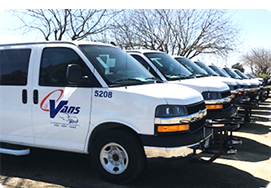 Agricultural Worker Vanpool Pilot - Statewide
Agricultural Worker Vanpool Pilot - Statewide
California Vanpool Authority (CalVans), $6,000,000 (CARB Contribution)
Agricultural Workers in low-income and disadvantaged communities statewide
- Deployed 154 new,15-passenger hybrid conversion vans that provide clean transportation to agricultural job sites in the San Joaquin Valley and other low-income agricultural areas in California
- Expanded CalVans San Joaquin Valley fleet by 60 percent (or 77 vans), for a total of 188 vans serving agricultural workers in eight counties
- The remaining 77 hybrid conversion vans funded serve other low income and disadvantaged agricultural areas in the state, such as the Coachella Valley and Salinas Valley
Lessons learned and project highlights
 Valley Air ZEV Mobility Pilot - San Joaquin Valley
Valley Air ZEV Mobility Pilot - San Joaquin Valley
San Joaquin Valley APCD, $749,800 (CARB Contribution)
Serves disadvantaged communities throughout San Joaquin Valley
- An affordable all electric carshare and vanpool service for residents of the San Joaquin Valley
- The pilot includes 9 electric vehicles: 6-Chevy Bolts and 3-Tesla Model X’s, 29-publicly accessible level two chargers and 3-DC fast chargers in disadvantaged communities within Cantua Creek and Delhi
- Pilot was halted due to the COVID-19 pandemic
Lessons learned and project highlights

Clean Urban Transit Buses
Battery and fuel cell buses better serve communities’ transit needs, substantially reduce greenhouse gas emissions, eliminate criteria pollutants, and provide economic benefits.
San Joaquin Valley Transit Electrification Project - $13.4 million
Project includes fifteen (15) Proterra battery electric buses, thirteen (13) depot charging stations including two (2) fast chargers along bus routes. The made-in-California buses will be operated by transit agencies in Fresno, Stockton, Modesto, and Visalia. The first two (2) buses arrived in the fall of 2017 at Stockton RTD
Lessons Learned and Project Highlights
City of Porterville Transit Electrification Project - $9.5 million
Project includes the purchase and operation of ten (10) GreenPower, 40-foot zero-emission all electric transit buses with depot charging. Buses will be deployed on all fixed routes based from the Porterville Transit Center. The first two buses arrived in the spring of 2018
Lessons Learned and Project Highlights

Clean School Buses
Rural School Bus Pilot Project - $10 million
Statewide program to replace older school buses with new cleaner technology options. Funding is also available for charging and/or fueling equipment. The program is designed to give preference to school districts in small and medium sized air districts. The application process is expected to begin in February 2017.
- The project will fund about 30 to 60 new school buses, and is expected to reduce carbon dioxide by 10,000 metric tons
Lessons Learned and Project Highlights
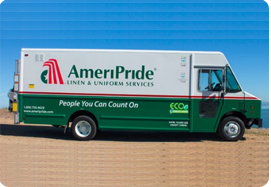
Clean Delivery Trucks
Green On-Road Linen Delivery Project - $7.1 million
Project includes twenty (20) zero-emission all-electric walk-in-van delivery vehicles to be used in linen deliveries. AmeriPride’s locations in Fresno, Bakersfield, Stockton and Merced allow them as a business to demonstrate the technology in disadvantaged communities. This will also allow them to evaluate the technology for use in their other locations throughout North America.
- AmeriPride provides linen, uniforms, floor mats, restroom and cleaning products to nearly 150,000 customers every week
- The residents of San Joaquin Valley will benefit from a reduction in carbon emissions and criteria pollutants
Lessons Learned and Project Highlights
USPS Zero-Emission Delivery Truck Pilot Commercial Deployment Project - $4.5 million
Effort to deploy fifteen (15) zero-emission battery electric USPS “step vans” and associated charging infrastructure across two USPS hubs in Stockton and Fresno.
- The project is expected to reduce carbon dioxide by 247.9 metric per year
- The project will also provide economic, environmental, and public health co-benefits to disadvantaged communities, while demonstrating the practicality and economic viability of the widespread adoption of a variety of zero-emission medium and heavy-duty vehicle technologies
Lessons Learned and Project Highlights
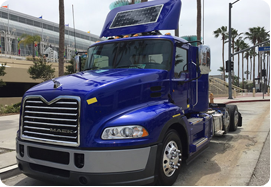
Clean Drayage Trucks
Battery Electric Drayage Truck Demonstration - $23.7 million
A statewide demonstration of forty-four (44) zero-emission battery electric and plug-in hybrid drayage trucks serving major California ports, including the Ports of Los Angeles and Oakland. The Class 8 trucks and charging infrastructure will be used in five air districts (South Coast, Bay Area, San Joaquin Valley, Sacramento, and San Diego) providing emission reduction benefits in key areas of California. The first trucks began operation early in 2018 with a second wave of deployments starting in 2019.
- This is the first large-scale demonstration of zero-emission Class 8 trucks that involves major manufacturers, including BYD, Kenworth, Peterbilt and Volvo
- Freight transport in California is a major economic engine for the state but also accounts for about half of toxic diesel particulate matter (PM 2.5), 45 percent of the emissions of nitrogen oxides (NOx) that form ozone and fine particulate matter in the atmosphere, and 6 percent of all GHG emissions in California
Lessons Learned and Project Highlights

Clean Trucks at Rail Yards & Freight Distribution Centers
Opposed Piston Engine Class 8 Heavy Duty On-Road Demonstration - $7 million
This project will build and demonstrate opposed piston engine equipped class 8 heavy-duty line haul trucks that will demonstrate the CARB ultra-low NOx emissions target (0.02 g / bhp-hr) with at least a 15% reduction in CO2 when compared to a 2017 commercial vehicle equipped with a current diesel engine.
- Walmart and Tyson Foods will run these demonstration vehicles in revenue service on regional long haul routes, based from disadvantaged community locations in the central valley and LA area
- This engine will improve fuel consumption and NOx emissions in segment by 30-50% once mass adoption is achieved
Lessons Learned and Project Highlights
San Joaquin Valley Electric Tractor Development and Demonstration - $1.5 million
In partnership with Project Clean Air, HummingbirdEV will develop, design and deploy four 50 HP all-electric tractors to be tested at multiple Moonlight Companies’ facilities. HummingbirdEV will also build an electric Class 6 truck for Moonlight Companies with the purpose of replacing the current diesel Class 6 trucks.
- The Fresno State Transportation Institute will provide third party data collection and analysis.
- A key component of the analysis will include the paring of an electric tractor with a diesel tractor and the two will perform identical tasks to show true GHG and emission reductions
Lessons Learned and Project Highlights

Multiple Clean Technologies Used in Goods Movement
San Joaquin Valley Zero-Emission Cargo Handling Demonstration Project - $772,555
The San Joaquin Valley Zero-Emission Cargo Handling Demonstration Project will accelerate the commercial deployment of zero-emission off-road technologies by demonstrating state-of-the-art battery-electric heavy-duty forklifts at the Port of Stockton.
The project will demonstrate two heavy-duty, 30,000-pound lift capacity, fully battery-electric forklifts that will provide economic and environmental benefits and demonstrate the scalability, practicality, and economic viability of widespread transformation of zero-emission heavy-duty cargo handling equipment.
Lessons Learned and Project Highlights

Zero and Near Zero Emission Freight Facility Projects
Sustainable Terminals Accelerating Regional Transformation - $50 million
The project will demonstrate what sustainable supply chains of the future can look like: containers delivered by the world’s cleanest vessels, loaded onto zero-emission yard tractors, handled by zero-emission top handlers and rubber-tired gantry (RTG) cranes, transferred to zero-emission trucks headed for an off-dock cargo-handling facility. Vehicles/Equipment Funded:
Port of Long Beach (All Battery-Electric)
- 33 Yard Tractors
- 1 Top Handler
- 9 Rubber-Tired Gantry Cranes
- 5 Class 8 Drayage Trucks
Port of Oakland (All Battery-Electric)
- 5 Yard Tractors
- 1 Top Handler
- 10 Class 8 Drayage Trucks
Port of Stockton (All Battery-Electric)
- 34 Forklifts
- 1 Rail Car Mover
Lessons Learned and Project Highlights
Net-Zero Farming and Freight Facility Demonstration Project - $3.3 million
This project will deliver five zero emission, all electric battery class 7 trucks with all-electric transport refrigeration units (eTRUs) to the main demonstration site, Moonlight Companies in Reedley, California. Vehicles/Equipment Funded:
- Five Class 7 single trucks will be designed & developed as full battery electric for Ag Fruit Freight Transport
- Five TRU boxes, as battery electric eTRUs, specifically for fruit transport between packing and cold storage warehouse facilities
- Each Class 7 eTruck will receive an eTRU to serve as a complete Zero Emissions refrigerated transport unit truck to serve the “First 5 to 15 miles” of agriculture freight movement to market
Lessons Learned and Project Highlights
Flexible Solutions for Freight Facilities - $22.6 million
This project is a BNSF Railway-led initiative to demonstrate zero and near-zero emission technologies in and around its yards. Vehicles/Equipment Funded:
- One GE Transportation Battery Electric Locomotive
- Two Mi-Jack hybrid-electric rubber-tire gantry crane
- One Taylor Machine Works, Inc. all-electric side loader
- One BYD all-electric Class 8 drayage truck
Lessons Learned and Project Highlights
Frito Lay Transformative Zero and Near Zero Emission Freight Facility Project - $15.4 million
This project aims to completely replace the use of all diesel-powered freight equipment within one of Frito-Lay’s largest food production, warehouse and regional distribution facilities. Vehicles/Equipment Funded:
- Fifteen Tesla heavy-duty battery electric tractors
- Six Peterbilt 220e battery electric trucks
- Three BYD battery electric yard trucks
- Twelve BYD Lithium-Ion battery electric forklifts
- Thirty Eight Volvo VNL tractors with ISX12N low NOx engine
- Compressed natural gas fueling station providing renewable fuel
- One MW photovoltaic array with energy storage
- Truck charging systems and energy storage
Lessons Learned and Project Highlights